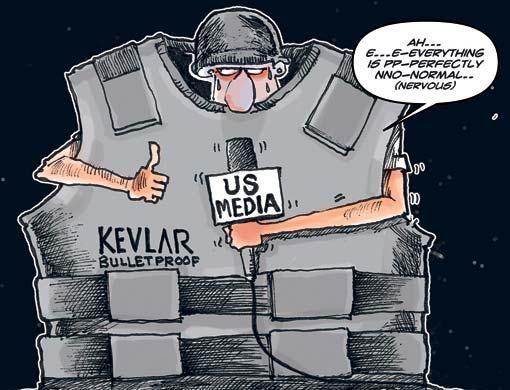Reports surfacing in the international press noted "progress" and "good news" about Iraq's situation when it comes to stability and development.
Reports on the ground from the US military noted a 55 per cent drop in attacks since the surge was implemented nine months ago and that violence has dropped to its lowest rate since 2005 as Baghdad gained the best numbers with 75 per cent decline in civilian casualties.
That was what the US media reported as "good news".
In his Newsweek report on the situation in Baghdad, journalist Rod Nordland conveyed a totally different picture of Baghdad in his latest visit after a four-month absence. "There hasn't been a successful suicide car bombing in Baghdad in five weeks," he said.
Life is slowly returning to "normal" for Iraqi citizens. But the definition of what is "normal" there is quite different compared to the standard definition one would envision.
For them, "normal" means not having to fear for their lives; not to be anticipating a rocket launcher attack or an approaching car bomb; it is not having to return home before sunset and not having to stay awake at night because of the sounds of bombings and gunfire in their neighbourhood.
But this is also "good news" to them too. It has certainly helped them revive their hopes in the future.
If we carefully examine the steps taken by US forces to achieve those results, we would find that winning the hearts and minds of Iraqis was not one of them.
The results were mainly due to the use of some fractions to achieve what they couldn't. In particular, it was the use of tribal Sunni militia to track down foreign Al Qaida elements.
Indeed, Saddam loyalists and former Sunni insurgents have been armed by the US and encouraged to go after the "foreign elements" in the country and eliminate them. In this they have been successful.
Although the spread of arms with any group apart from the police and army forces is not a healthy sign, it did however achieve some short-term objectives. The long-run however remains a whole different story.
If there is one thing that unites almost all Iraqis, is their desire to see the US troops out of the country. This is also recognised by the American people, who are increasingly approving the withdrawal of their forces as soon as possible.
With such "good news" emerging, a positive sentimental feeling is filling the air with high hopes in having an end to this resource-depleting venture.
Even General David Petraeus is acknowledging the possibility of having a withdrawal plan that could allow some American soldiers to spend their Christmas holidays with their families.
With all this encouraging "good news" the media, particularly in the US, is reporting, should we take this news for its face value and avoid all the long-term implications of what is going on?
The shallowness of media coverage following the 9/11 incident had helped drum up for the war against Iraq. This very shallowness is now promoting the idea that things seem to be going in the right direction.
Certainly not
Well guess what? This "good news" is certainly not good news. Insiders in Iraq are certainly aware that this is not the long-term solution that they aspired.
Experienced politicians and analysts with first-hand experience and knowledge of the region understand that there is certainly something fishy going on.
Part of their common concern is that they understand that those elements fighting Al Qaida are certainly not doing it out love for the country or to reduce casualties afflicted on the US forces, which used to be their number one enemy.
They are doing this because of other motives. One of them could be their belief that this may be the quickest way to get the Americans to leave the country. Another could be their understanding that by doing this, they are reducing the dependency on the Iraqi army.
What this suggests is that those groups are planning big for the day the country is liberated from the last American occupying forces.
They may be planning to have a serious stake in leading the country. After all, it was them who helped clear the way for stability and elimination of Al Qaida.
In other words, it is apparent that by having the US justifying the means to reach the goals, it is deliberately setting the stage for another potential strife that Iraqis would suffer from.
In short, without having an established a legitimate force that is in control of its land and enforcing the law, with so many armed factions moving around freely, and without winning the hearts of minds of Iraqis, I can't see any long-term achievement materialising.
Everyone likes to hear good news, but it is always wise to not take the media reports for their face, for what is said to be "good news" may certainly turn out to be something else.
Walid Al Saqaf is an information communications technology and media consultant.










